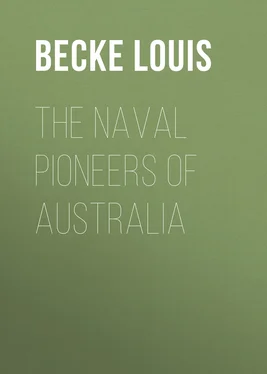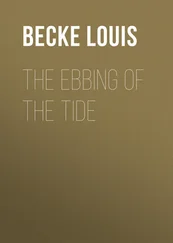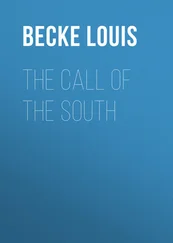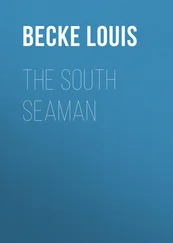Louis Becke - The Naval Pioneers of Australia
Здесь есть возможность читать онлайн «Louis Becke - The Naval Pioneers of Australia» — ознакомительный отрывок электронной книги совершенно бесплатно, а после прочтения отрывка купить полную версию. В некоторых случаях можно слушать аудио, скачать через торрент в формате fb2 и присутствует краткое содержание. Жанр: foreign_prose, literature_19, foreign_antique, на английском языке. Описание произведения, (предисловие) а так же отзывы посетителей доступны на портале библиотеки ЛибКат.
- Название:The Naval Pioneers of Australia
- Автор:
- Жанр:
- Год:неизвестен
- ISBN:нет данных
- Рейтинг книги:4 / 5. Голосов: 1
-
Избранное:Добавить в избранное
- Отзывы:
-
Ваша оценка:
- 80
- 1
- 2
- 3
- 4
- 5
The Naval Pioneers of Australia: краткое содержание, описание и аннотация
Предлагаем к чтению аннотацию, описание, краткое содержание или предисловие (зависит от того, что написал сам автор книги «The Naval Pioneers of Australia»). Если вы не нашли необходимую информацию о книге — напишите в комментариях, мы постараемся отыскать её.
The Naval Pioneers of Australia — читать онлайн ознакомительный отрывок
Ниже представлен текст книги, разбитый по страницам. Система сохранения места последней прочитанной страницы, позволяет с удобством читать онлайн бесплатно книгу «The Naval Pioneers of Australia», без необходимости каждый раз заново искать на чём Вы остановились. Поставьте закладку, и сможете в любой момент перейти на страницу, на которой закончили чтение.
Интервал:
Закладка:
Louis Becke
The Naval Pioneers of Australia
PREFACE
This book does not pretend to be a history of Australia; it merely gathers into one volume that which has hitherto been dispersed through many. Our story ends where Australian history, as it is generally written, begins; but the work of the forgotten naval pioneers of the country made that beginning possible. Four sea-captains in succession had charge of the penal settlement of New South Wales, and these four men, in laying the foundation of Australia, surmounted greater difficulties than have ever been encountered elsewhere in the history of British colonization. Under them, and by their personal exertions, it was made possible to live upon the land; it was made easy to sail upon the Austral seas. After them came military and civil governors and constitutional government, finding all things ready to build a Greater Britain. Histories there are in plenty, of so many hundred pages, devoted to describing the "blessings of constitutional government," of the stoppage of transportation, of the discovery of gold, and all the other milestones on the road to nationhood; but there is given in them no room to describe the work of the sailors—a chapter or two is the most historians afford the naval pioneers.
The printing by the New South Wales Government of the Historical Records of New South Wales has given bookmakers access to much valuable material (dispatches chiefly) hitherto unavailable; and to the volumes of these Records, to the contemporary historians of "The First Fleet" of Captain Phillip, to the many South Sea "voyages," and other works acknowledged in the text, these writers are indebted. Their endeavour has been to collect together the scattered material that was worth collecting relating to what might be called the naval period of Australia. This involved some years' study and the reading of scores of books, and we mention the fact in extenuation of such faults of commission and omission as may be discerned in the work by the careful student of Australian history.
The authors are very sensible of their obligations to Mr. Emery Walker, not only for the time and trouble which he has bestowed upon the finding of illustrations, but also for many valuable suggestions in connection with the volume.
LOUIS BECKE.
WALTER JEFFERY.
London , 1899.
"Whenever I want a thing well done in a distant part of the world; when I want a man with a good head, a good heart, lots of pluck, and plenty of common sense, I always send for a Captain of the Navy."—LORD PALMERSTON.
THE NAVAL PIONEERS OF AUSTRALIA
CHAPTER I.
INTRODUCTORY—THE EARLIEST AUSTRALIAN VOYAGERS: THE PORTUGUESE, SPANISH, AND DUTCH
Learned geographers have gone back to very remote times, even to the Middle Ages, and, by the aid of old maps, have set up ingenious theories showing that the Australian continent was then known to explorers. Some evidence has been adduced of a French voyage in which the continent was discovered in the youth of the sixteenth century, and, of course, it has been asserted that the Chinese were acquainted with the land long before Europeans ventured to go so far afloat. There is strong evidence that the west coast of Australia was touched by the Spaniards and the Portuguese during the first half of the sixteenth century, and proof of its discovery early in the seventeenth century. At the time of these very early South Sea voyages the search, it should always be remembered, was for a great Antarctic continent. The discovery of islands in the Pacific was, to the explorers, a matter of minor importance; New Guinea, although visited by the Portuguese in 1526, up to the time of Captain Cook was supposed by Englishmen to be a part of the mainland, and the eastern coast of Australia, though touched upon earlier and roughly outlined upon maps, remained unknown to them until Cook explored it.

Early Voyages to Australia , by R.H. Major, printed by the Hakluyt Society in 1859, is still the best collection of facts and contains the soundest deductions from them on the subject, and although ably-written books have since been published, the industrious authors have added little or nothing in the way of indisputable evidence to that collected by Major. The belief in the existence of the Australian continent grew gradually and naturally out of the belief in a great southern land. Mr. G.B. Barton, in an introduction to his valuable Australian 1578history, traces this from 1578, when Frobisher wrote:—
"Terra Australis seemeth to be a great, firme land, lying under and aboute the south pole, being in many places a fruitefull soyle, and is not yet thorowly discovered, but only seen and touched on the north edge thereof by the travaile of the Portingales and Spaniards in their voyages to their East and West Indies. It is included almost by a paralell, passing at 40 degrees in south latitude, yet in some places it reacheth into the sea with great promontories, even into the tropicke Capricornus. Onely these partes are best known, as over against Capo d' buona Speranza (where the Portingales see popingayes commonly of a wonderful greatnesse), and againe it is knowen at the south side of the straight of Magellanies, and is called Terra del Fuego. It is thoughte this south lande, about the pole Antartike, is farre bigger than the north land about the pole Artike; but whether it be so or not, we have no certaine knowledge, for we have no particular description thereof, as we have of the land under and aboute the north pole."
Then Purchas, in 1678, says:—
"This land about the Straits is not perfectly discovered, whether it be Continent or Islands. Some take it for Continent, and extend it more in their imagination than any man's experience towards those Islands of Saloman and New Guinea, esteeming (of which there is great probability) that Terra Australis, or the Southerne Continent, may for the largeness thereof take a first place in order and the first in greatnesse in the division and parting of the Whole World."
The most important of the Spanish voyages was that made by De Quiros, who left Callao in December, 1605, in charge of an expedition of three ships. One of these vessels was commanded by Luis Vaez de Torres. De Quiros, who is believed to have been by birth a Portuguese, discovered several island groups and many isolated islands, among the former being the New Hebrides, which he, believing he had found the continent, named Tierra Australis del Espiritu Santo. Soon after the ships commanded by De Quiros became separated from the other vessels, and Torres took charge. He subsequently found that the land seen was an island group, and so determined to sail westward in pursuance of the scheme of exploration. In about the month of August he fell in with a chain of islands (now called the Louisiade Archipelago and included in the British Possession of New Guinea) which he thought, reasonably enough, was the beginning of New Guinea, but which really lies a little to the southeast of that great island. As he could not weather the group, he bore away to the southward, 1605and his subsequent proceedings are here quoted from Burney's Voyages :—
"We went along three hundred leagues of coast, as I have mentioned, and diminished the latitude 2-1/2 degrees, which brought us into 9 degrees. From thence we fell in with a bank of from three to nine fathoms, which extends along the coast to 7-1/2 south latitude; and the end of it is in 5 degrees. We could go no further on for the many shoals and great currents, so we were obliged to sail south-west in that depth to 11 degrees south latitude. There is all over it an archipelago of islands without number, by which we passed; and at the end of the eleventh degree the bank became shoaler. Here were very large islands, and they appeared more to the southward. They were inhabited by black people, very corpulent and naked. Their arms were lances, arrows, and clubs of stone ill-fashioned. We could not get any of their arms. We caught in all this land twenty persons of different nations, that with them we might be able to give a better account to your Majesty. They give [us] much notice of other people, although as yet they do not make themselves well understood. We were upon this bank two months, at the end of which time we found ourselves in twenty-five fathoms and 5 degrees south latitude and ten leagues from the coast; and having gone 480 leagues here, the coast goes to the north-east. I did not search it, for the bank became very shallow. So we stood to the north."
Читать дальшеИнтервал:
Закладка:
Похожие книги на «The Naval Pioneers of Australia»
Представляем Вашему вниманию похожие книги на «The Naval Pioneers of Australia» списком для выбора. Мы отобрали схожую по названию и смыслу литературу в надежде предоставить читателям больше вариантов отыскать новые, интересные, ещё непрочитанные произведения.
Обсуждение, отзывы о книге «The Naval Pioneers of Australia» и просто собственные мнения читателей. Оставьте ваши комментарии, напишите, что Вы думаете о произведении, его смысле или главных героях. Укажите что конкретно понравилось, а что нет, и почему Вы так считаете.












